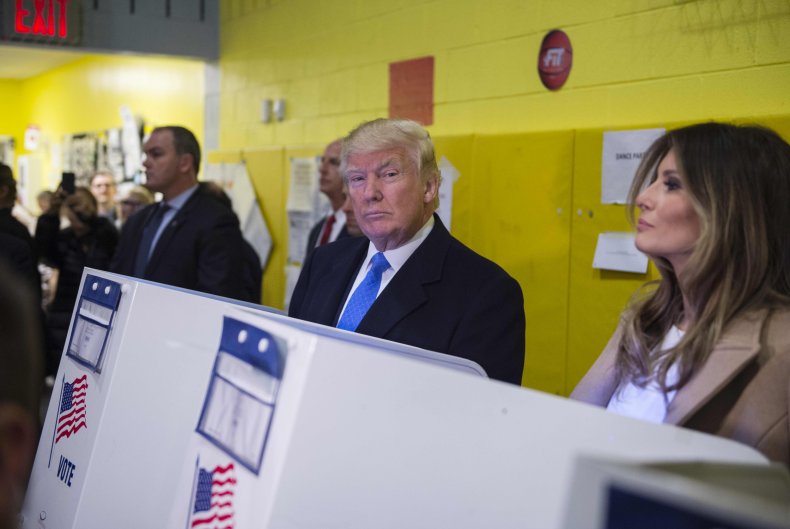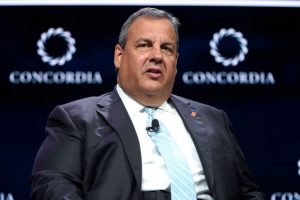President Donald Trump will miss out on face-to-face time with voters during a crucial time in his re-election campaign because of his positive coronavirus diagnosis, but it’s unlikely the election will be postponed.
America’s Founding Fathers gave control over the timing of elections to Congress, not the executive branch of the government, so the decision lies with lawmakers on Capitol Hill. It would require a change to federal law, and with Republicans and Democrats at odds with each other right now, it’s hard to imagine they’d agree on moving the election.
Congress’ power to set the date of the presidential election falls within Article II of the Constitution. In 1845, Congress passed a federal law that sets Election Day as the first Tuesday after the first Monday in November. This year, that day falls on November 3.
Despite this federal law, there are two possible ways to postpone an election. One way—and the more realistic of two unrealistic scenarios—is for Congress to change the federal law. That means a bill needs to pass in the House and the Senate and gain a signature from Trump. Given that the Democrats control the House and Republicans have control of the Senate, it’s unlikely legislators will decide to move Election Day.
Newsweek subscription offers >
The second option is for Congress to transfer its decision-making ability to Trump. A Congressional Research Service (CRS) report found that Congress may delegate its powers to the executive branch as long as it includes standards so that a court can “ascertain whether the will of Congress has been obeyed.”
The CRS found no “apparent reason” why that doctrine wouldn’t extend to the power to set the time of a national election. So as long as Congress sets standards for the president to implement a postponement of the election, it’s possible Congress could delegate its authority to Trump.
Regardless of whether the date of the election moves, Trump’s first term would still end on January 20 and the new Congress would still be sworn in on January 3, as is dictated by the Constitution. To change those dates, Congress must pass an amendment to counter the 20th Amendment, which requires two-thirds approval in both the House and the Senate, as well as ratification by at least 38 states.
Newsweek subscription offers >
In 2004, the Bush administration was concerned about terrorists carrying out an attack before Election Day and there were rumblings about postponing it in the event of an attack. It would have been a historic change and one that never came to fruition.
“We’ve had elections in this country when we were at war, even when we were in civil war. And we should have the elections on time,” President George Bush’s national security adviser, Condoleezza Rice, told CNN at the time.
In July, Trump posed the question on Twitter as to whether the election should be delayed until “people can properly, securely and safely vote.” Even members of his own party rejected the idea of moving Election Day and Trump somewhat walked the comments back days later, telling reporters that he didn’t want to see the day change, but he also didn’t want a “crooked election.”
America’s never delayed a presidential election and doing so would also likely require a change to laws governing how the electoral college operates. The current statute requires members of the electoral college to meet on the first Monday after the second Wednesday in December to give their votes. So, there isn’t a ton of wiggle room to move the date and even if it does change, Trump’s term, as well as Vice President Mike Pence‘s, will still end on January 20. Without a clear winner of the election on January 20, the Speaker of the House, who is currently Nancy Pelosi, would serve as acting president.



















